“The first method for estimating the intelligence of a ruler is to look at the men he has around him.” So wrote the 15th to 16th century Florentine diplomat and political philosopher, Niccolò Machiavelli in his famous guidebook for would-be rulers, The Prince (1513, although not published until after his death in 1527). If he was right, then Boris Johnson, Prime Minister of the United Kingdom, has a problem. So keen was he on getting rid of all those who didn’t wholeheartedly support his prime ministerial determination to leave the European Union that he sacked all dissenting ministers who had supported moves to make it illegal to leave the EU without a deal. He then withdrew the whip and expelled from the party any doubters, which incidentally included old war horses like Kenneth Clarke and even Nicholas Soames. Soames is the grandson of Johnson’s hero, Winston Churchill, a biography of whom he wrote in homage. He replaced them with ardent Brexiteers, but the problem is that, by and large, they were never the sharpest knives in the drawer.
Machiavelli, like Johnson and his political guru, Dominic Cummings, was not interested in preserving the status quo; he wanted to overthrow it. They are disruptors. Johnson himself has a fierce temper when roused – usually by anyone who disagrees with him (the House of Commons has witnessed some embarrassing tantrums by Johnson) – but he prefers to keep it in check, at least publicly, and to be seen as ‘everyone’s pal’. He “elbow-bumps” strangers in the conviction that this makes him seem like “just one of the chaps”, but in reality, he is snobbish and tends to look down on those not blessed with his costly education and sense of privilege.
All this bonhomie is a false impression, part of the act he puts on in public, but he leaves the anger part to Cummings, by and large, who rules the team of political advisors based at Number 10 Downing Street, with a rod of iron, and through them, the ministers too. They seldom take much ruling.
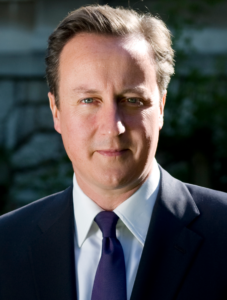
Former Prime Minister David Cameron once described Cummings as “a career psychopath”; whatever he may be, Cummings is not now nor ever was a Conservative. Political columnist and journalist Steve Richards, in his book The Prime Ministers, describes Johnson’s team as “largely unproven lightweights.” “There were few brilliant economists as powerful advisors, or weighty policy specialists,” he writes. “Instead there were those who met with Cummings’ approval – the main qualification for survival. They were mostly timid figures willing to echo Cummings’ sometimes insightful, but often eccentric, thoughts. He was fuelled by restless and impatient anger.” One Conservative politician told me that because Johnson had restricted his team to those who’d signed up for a hard Brexit: “nobody else could get a job”, which meant that he had saddled himself with a cabinet “of the lowest quality in modern history”. Some have accused Johnson, renowned for preferring inactivity to action, of being little more than Cummings’ amanuensis, dancing to his tune because it’s easier than thinking for himself. That way, at arm’s length, Johnson can adhere to another element of advice from Machiavelli: “Is it better to be loved or feared, or the reverse? The answer is that it is desirable to be both, but because it is difficult to join them together, it is much safer for a prince to be feared than loved, if he is to fail in one of the two.” Machiavelli also wrote that fear is better than love in other ways: “Love is preserved by the link of obligation which, owing to the baseness of men, is broken at every opportunity for their advantage; but fear preserves you by a dread of punishment which never fails.” Machiavelli knew what he was talking about, having been accused of conspiracy and tortured by the Medici he had served when they returned to power. Do Johnson’s team love him? They’re politicians, so presumably not, or at least not reliably; constancy is not a political survival trait.
Johnson also found himself having to defend his controversial advisor after Cummings defied the lockdown over the coronavirus in May to drive 400 kilometres from London to his father’s farmhouse in County Durham. He also managed to take his wife and children to Barnard Castle and to see her family at Chillingham Castle on her birthday.

It infuriated the former Labour MP for nearby Bishop Auckland, Helen Goodman, because she was barred from visiting her dying father in a care home just 200 metres from where she lived because of the virus rules which Cummings seems to have overlooked. He claims he drove to Barnard Castle “to test his eyes”, although surely, if he was concerned about his eyesight, going for a drive with his wife and children in the car would have been at least inadvisable, if not illegal. The government rushed to Cummings’ defence and ministers were ordered to Tweet their confidence in him on pain of losing their jobs. It is believed that three of them – rather bravely – refused. Defying Johnson and Cummings can have, one Tory told me, some very unpleasant consequences. Cummings claimed he made the trip because he needed childcare facilities, although these could have been provided in London, where he would have been told not to embark upon such a reckless trip. The entire incident has made it hard to enforce COVID-19 rules, with those caught breaching them arguing that they were doing no more than Cummings had done. They have a point, but the knee-jerk defence of Cummings shows how indispensable he is to Johnson and his mainly low-grade team. Cummings was obliged to give a press conference, very reluctantly, but he has never apologised and still claims he did nothing wrong, which has encouraged a great many others to ignore restrictions.
ENJOYING EXLUSIVITY
Alexander Boris de Pfeffel Johnson was born in Manhattan and educated at the very exclusive (and costly) Eton College, going on to read classics at Balliol College, Oxford. He was not universally admired for his scholarship while at Eton, according to a letter sent to his father, Stanley Johnson, by his House Master, Martin Hammond, who taught him classics. According to The London Economic website, Hammond had noted that the young Johnson displayed “a certain irresponsibility and inattention to facts”. The website explains that in a school report in April 1982, Hammond wrote: “Boris really has adopted a disgracefully cavalier attitude to his classical studies . . . Boris sometimes seems affronted when criticised for what amounts to a gross failure of responsibility (and surprised at the same time that he was not appointed Captain of the School for next half): I think he honestly believes that it is churlish of us not to regard him as an exception, one who should be free of the network of obligation which binds everyone else.” He really hasn’t changed much.
Before Eton, he went to Ashdown House preparatory school, a similarly expensive choice. His sister Rachel was also sent there – the school’s first female pupil – and has admitted in an article for Britain’s Daily Mail newspaper that “not everyone has fond recollections” of the place, although in the same article she wrote that “we all loved it”. Odd, since she had once described the school as “Pederasty Towers”. Certainly, there was a lot of physical activity there: “During the mid-1970s, more than half the teachers at any one time were accused of sexual abuse,” according to the satirical magazine Private Eye. A large number of former pupils have mounted a legal case against the school’s owners for compensation. Private Eye reports that one master, given a glowing reference by the headmaster, despite allegations of paedophilia from parents, is now serving a 12-year sentence for sex offences against Ashdown pupils. What effect, if any, all this had on Boris Johnson is unknown.
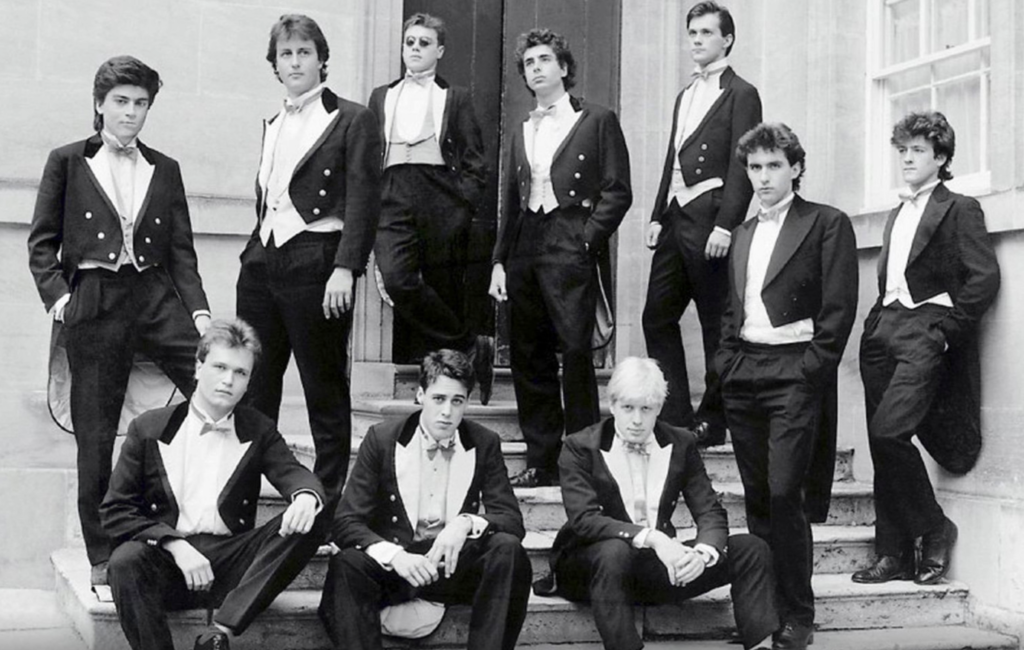
At Oxford, Johnson joined the Bullingdon Club, an exclusive all-male dining club founded some two centuries ago and notorious for the riotous and anti-social activities of its members. Membership is restricted to the seriously rich, often the sons of titled aristocrats, and the uniform members are required to wear at its dinners has been estimated to cost around £3,500 (€3,818), even though it’s quite unsuitable to wear anywhere else. It was, however, compulsory at the dinners that were held in various locations, albeit never in or near the university. The club had been ordered by university authorities not to meet within 24 kilometres of the colleges for fear of bad behaviour. The diners often vandalised restaurants and sometimes the buildings around one of the university quads. Waiters were insulted and abused, too, as were any students they met that they deemed to be ‘artistic’; some of them were ‘debagged’ (had their trousers forcibly removed) and were thrown into a college fountain. Basically, it was an excuse for rich, over-indulged and over-privileged young men to mock with impunity those who lacked their wealth and advantages of birth. In 2005, it was reported that Bullingdon diners had smashed 17 bottles of wine, all the crockery and a window at a 15th century pub near Oxford. Compensation was always paid promptly and in cash, although the owners of the trashed premises were left to clear up the mess and arrange repairs. The members were all potential Conservatives – former British Prime Minister David Cameron was one, as was his Chancellor of the Exchequer, George Osborn, and former foreign minister Jeremy Hunt – but in 2018 the Oxford University Conservative Association banned Bullingdon members from holding any of its offices. Flouting one’s wealth is all very well but denigrating the less wealthy and ruining the reputation of the university is not. Even the future King Edward VIII had a difficult time persuading his parents to let him join, such was the club’s reputation. The fact that he wanted to speaks volumes; his reign was extremely short, after all, ended by his infatuation with and marriage to the American divorceé, Wallace Simpson. The mother of Britain’s present Queen loathed him. He was friendly with Adolf Hitler and black-and-white home movies show him teaching the young princesses the Nazi salute.
Enthusiastic membership of a club based on exploiting unearned privilege is hard to square with Johnson’s “just one of the chaps” persona, even though a lot of people in working class areas saw him as their defender against what they considered “the elite”. It’s strange to think of someone from such a wealthy background being seen as ordinary while the middle classes (who lacked Johnson’s advantages) were seen as “elite”. It was a clever trick to play, with Dominic Cummings usually being behind these sleights of hand as part of his plan to leave the European Union. Cummings is opposed to bureaucracy and at the Department of Education under Michael Gove was instrumental in weakening the council-run bodies in charge of schools, although he favoured strict rules on what was taught and when by teachers. In other words, he didn’t want elected councillors or their officials taking decisions on education, but freedom for teachers meant – to him – freedom to do exactly what Cummings told them. Johnson was happy to go along with this when he took him on as his advisor. One observer noted that just as a blind person needs a ‘seeing-eye’ dog, Johnson needs a ‘thinking-brain’ person to guide him.

I met Johnson’s father, Stanley, before I met Boris. It was in Strasbourg. Stanley Johnson, animal rights campaigner and writer of what many would dismiss as somewhat pedestrian pulp fiction, had been a member of the European Parliament before the introduction of direct elections in 1979, and stayed on as an EEC official. I interviewed him about his attempts to get a ban on the import of skins from Canada’s annual seal cull, which was his main preoccupation at the time. That was before I moved to Brussels. Johnson senior told a reality TV show in which he was participating that his son would make a splendid prime minister “because he went to Eton, you know”. The Duke of Wellington is alleged to have said (there is no written source) that the Battle of Waterloo was won “on the playing fields of Eton”, but he was hopelessly arrogant, dismissing his victorious and courageous soldiers as “the scum of the Earth”. But the battles of the two World Wars of the last century were mainly won, not at Eton but in the coal mining towns of County Durham, Yorkshire, Nottinghamshire and South Wales, or in the shipyards of the Tyne, the Clyde and the Mersey. The German soldier Max Hoffman remarked that the British forces in the First World War were like “lions led by donkeys”; the poor working-class areas of the north of England, Scotland, Wales and Ireland supplied the lions; Eton College and other expensive schools for the rich (albeit with some notable exemptions) supplied most of the donkeys.
WHAT IS TRUTH?
When I approached a former Conservative MEP to ask about his memories of Johnson, his response was brief and to the point. “I think you had better get your copy in quickly,” said Brendan Donnelly, who now runs the London-based Federal Trust, “otherwise you may be penning the portrait of an ex-Prime Minister! The way the Conservative press has turned against Johnson in the past week is quite extraordinary.” It was only last December (2019) that Johnson won a landslide election victory, using the slogan “get Brexit done”, which proves that most voters still want to leave the EU.
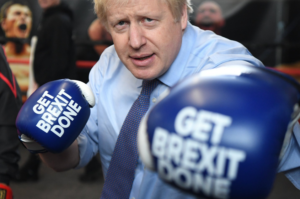
By the end of August 2020, a YouGov poll said that only 39% believed he was doing a good job, while 54% thought he was doing badly, with only 7% undecided. The media likes winners; Johnson looked like one not so long ago, but as the COVID-19 pandemic has dragged on and the British government Johnson heads has looked increasingly lost and indecisive (not to mention given to nepotism), fear for the future makes the media look for scapegoats. Johnson’s advantage – and his curse – is that he has star quality. People remember him and like what they see, but star quality is like sequins stuck onto an otherwise unprepossessing item of clothing: they tend to fall off, leaving the wearer looking rather shabby. Yet back when he was a regular performer on the satirical TV news quiz, Have I Got News for You, he seemed to radiate charisma, at least for some. In a bookshop once, as I was browsing, a young woman asked an assistant if he could recommend a book about Winston Churchill. He mentioned that there was a new one, just published, written by Boris Johnson. “Oh!” she exclaimed, “BoJo!” in an excited voice (BoJo was a nickname that did not survive his elevation to high office) and was clearly attracted to the book because of the writer. In fact, quite a lot of women have been attracted to Boris Johnson, it seems, and it’s alleged that he has fathered several children with them, although he won’t reveal how many. In 2003, he was appointed vice-chair of the Conservative Party and Shadow Arts Minister under Michael Howard’s leadership. That ended the following year after he claimed that an alleged affair with Spectator columnist Petronella Wyatt was “piffle”, only for it to emerge that it was true.

During the referendum campaign, Johnson continued his misleading work, co-signing a letter that claimed that David Cameron wanted Turkey to join the EU, which would, Johnson claimed, mean that Britain’s National Health Service would be obliged to treat 76-million Turks (in the unlikely event that they all fell ill at the same time and travelled to the UK for treatment, rather than going to a local doctor). He later claimed he’d never mentioned Turkey during the referendum campaign. Lies come easily to him.
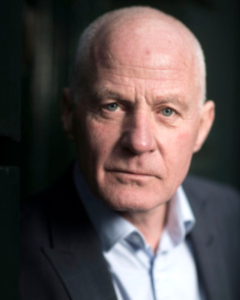
He has relatively little sympathy for the gay community, it seems, according to a former Labour MEP, now member of the House of Lords, Michael Cashman. “Boris Johnson’s greatest asset is that he only believes in Boris Johnson,” he told me. “That will also be his greatest downfall.” Lord Cashman went on to recall a story that he included in his autobiography. “When Paul, my late partner, lobbied him about a gay vote coming up in the Commons and pointed out the Johnson had said and voted previously in a negative way, Johnson’s response, as I recorded in my memoir ‘One of Them’, was that Paul should not take any notice because he didn’t believe in anything!” Apart from himself, that is. By and large, that seems to have been true. Writing his articles that poked fun at the EU were, he once said, the most fun he’d had as a journalist. He knew they were fiction. Getting sacked from The Times for allegedly making up a quote by his own godfather, the historian Colin Lucas, that was not only incorrect but historically impossible and potentially damaging to Lucas’s academic reputation, may have been a schoolboy error. Or it may have been laziness, another quality for which he was noted while in Brussels.
But his lies about the EU just grew and grew: The Daily Telegraph liked them and seemed careless of their accuracy. They played well with Telegraph readers, some of whom presumably still hankered after the glorious days of empire. Not only were they picked up by other Eurosceptic papers, such as the Daily Mail and the Sun, but they started a fashion for similarly misleading fiction posing as fact. Among Johnson’s flights of fancy were the alleged creation of a European police force to check on the curvature of bananas, a demand that UK trawlermen would be forced to wear hairnets and the supposed introduction of standardised, one-size-fits-all ‘Euro-coffins’ for the dead.
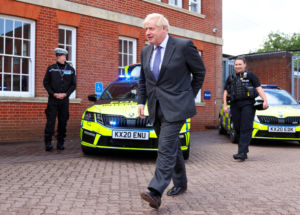
All of these were totally untrue. Accused of lying in the House of Commons, he denied it, even though the stories were demonstrably untrue, accusing his accusers of attacking him for being anti-EU. John Major’s government, while he was Prime Minister, even arranged a media conference at the officers of the UK Permanent Representation in Brussels to point out how untruthful the articles had been, distributing a UK-produced book of ‘Euromyths’, many of which had originated with Johnson. One journalist friend from a notoriously anti-European newspaper, muttered “I wish I’d thought of that one,” when reading one of Johnson’s creations. Johnson found his cavalier approach to accuracy could get him into more serious trouble when he wrote that ‘drunken Liverpool fans’ had caused the Hillsborough disaster in 1989, in which 96 soccer fans were killed and a further 766 injured by crushing because the event was so mishandled by the police and officials at the ground. He was not alone in making that unfounded accusation but none-the-less was obliged to apologise. As for the so-called Euromyths, he was unapologetic when explaining his untruths during a BBC interview: “I was sort of chucking these rocks over the garden wall and I listened to this amazing crash from the greenhouse next door over in England,” he said, as if it was just a bit of fun and not at all important.

An Irish MEP, Seán Kelly of Fina Gael, summed up the reality of Johnson to me quite succinctly: “Boris is an enigma who seems to change his mind with the wind. As a result, he often blows up a storm, leaving a trail of destruction in his wake. But it doesn’t seem to bother him in the least, making it very difficult for negotiators to decide whether to take what he says seriously or just wait for a wind from a different direction to blow, and with it a different stance from Boris on the same issues.”
LOVE STORIES (BRIEF AND TROUBLED)
Johnson could be kind, even if he preferred the company of those with a public-school education to products of state grammar schools, like me. At one time, while I was freelancing for regional independent television stations in the UK, I was being plagued by a young journalist who would ask, in a friendly way, what stories I was hoping to cover that day. Naïvely, I would tell him, only to find out that he had called the same TV station and offered to cover that story for less. Later, he took to watching over my shoulder and reading notes on my desk to find out what stories he could snatch from me. I bumped into Johnson in a bar near the Commission in Brussels and mentioned this problem. Johnson offered to telephone him, claiming to be from ITN in London, and telling him to go to Moscow and await further instructions. I suppose it was meant kindly, but I could not let this young interloper, however annoying, go off on a wild goose chase that would leave him stranded in Moscow, severely out of pocket and without the means of getting back. I have wondered since if Johnson finds it hard to imagine being as short of funds as many of us Brussels freelance correspondents (and a lot of other working people) were.
He may get some notion of that following a costly divorce from his second wife, Marina Wheeler. His first marriage, to Allegra Mostyn-Owen, whom he met at Oxford University, only lasted six years. His marriage to Ms. Wheeler lasted from 1993 to 2018, producing four children. However, he now lives with Carrie Symonds, who has also produced a child, while back in 2013 a judge refused him the right to keep quiet about fathering a daughter through an adulterous affair conducted while he was Mayor of London. His divorce from Marina Wheeler came a year after her battle with cancer. In his divorce settlement, it’s understood his ex-wife was awarded around £4-million (€4.36-million). Marina Johnson’s sister, Shirin, was a Brussels-based BBC journalist but is now a spokesperson for the European Commission. A few years ago, while Boris Johnson was still Mayor of London, he paid a visit to the European Parliament. Crossing the passerelle – the broad footbridge linking two parts of the building – he passed Shirin as she was in the middle of shooting a TV interview. “Good morning, Shirin,” he boomed at her, interrupting the recording. Instead of replying instantly, she turned and looked out of the window and then up at the sky. “Just checking if it is,” she said to him. “You’re such a liar, Boris.” Not much love lost there, I think.
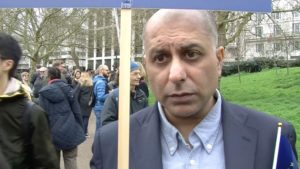
“There seemed to be a real contradiction between the writing he was doing and the type of life he was living,” says Sajjad Karim, formerly a Conservative MEP and now a consultant for companies seeking to do business in Europe. “He was living a very full liberal sort of mindset European lifestyle, while at the same time criticising everything he could about it.” Johnson was already Mayor of London by the time Karim was elected, so their paths never crossed professionally. But like most politicians working in Brussels, he heard stories. Johnson, for instance, could never take criticism. “He’s rather like Nigel Farage, as well,” Karim told me. “Boris has managed to paint himself as a certain type of individual in the eyes of the public. You know, people call him ‘Boris’, they relate to him as ‘Boris’. Not many politicians are able to achieve that. And look at Nigel Farage, he’s the ‘cheeky chappy’, leaning against the bar with a cigarette and a pint in his hand and people sort of relate to that. They don’t understand and realise actually how vindictive these people are as individuals; how very thin-skinned they are. They’re very good at dishing it out but not at all good when it comes back the other way.” A former editor of the Daily Telegraph, Sir Max Hastings, has described Johnson as “a cavorting charlatan”. That’s a bit rich: it was in part the appeal of Johnson’s ‘Little Englander’ articles, largely untrue though they were, that was boosting circulation. Hastings had warned Johnson about his pursuit of women and his tendency to father illegitimate children, yet still appointed him his Brussels correspondent. In that rôle, he earned a reputation as the invisible man: seldom at his desk, never explaining his absences, seldom attending official press conferences and locking his office desk and door to keep Daily Telegraph colleagues away, while they were left to do the serious reporting.
BREXIT? MOI?
He gets a similarly rough ride in Anne Applebaum’s latest book, Twilight of Democracy. She describes Boris Johnson as “an all-consuming narcissist” who – at least when she spoke to him for her book, before he became leader of the Conservative party – did not want Brexit at all, despite consequently lying heavily to achieve it. “Nobody serious wants to leave the EU,” he told her in 2014. “Business doesn’t want it.
The City doesn’t want it. It won’t happen.” And yet here we are, with Britain outside the EU and unlikely to get a meaningful trade deal, if it gets one at all. Indeed, Britain’s chief negotiator, David Frost, seems to have been appointed to ensure that trade between the UK and the EU happens only on WTO terms. This would undoubtedly please some of the more nationalist newspapers which will then, one assumes, blame the EU for the inevitable shortages and price rises. Another observer of the Johnson style was the one-time press officer for the Conservative group in the European Parliament, Ed Steen. “He’s an after-dinner speaker,” said Steen, “he’s clever, witty, he’s amusing, but absolutely untrustworthy.” The inner circle of the Conservative Party must have known all that when they chose him as leader, presumably on the principle that despite being another Old Etonian who went to Oxford and joined the snobbish and rather unpleasant Bullingdon Club (just like his predecessor, David Cameron) he had more public appeal among ordinary citizens: a clown but a popular one.
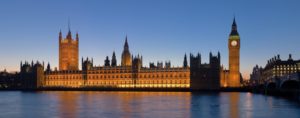
“He hasn’t got a mind that can concentrate on anything for very long,” I was told by one serving Conservative politician who preferred to remain anonymous (fear of Cummings and his minions is very real – he said he didn’t want Cummings’ people coming round to his flat with pitchforks, and seemed to mean it), “and he doesn’t seem to have any kind of moral compass, that you might expect somebody in that position to have.” According to another anonymous Conservative MP, “he deals with things on a sort of polarised basis, so that either you are with him, even if he is on a sort of ‘nonsense’ story, or you’re against him. And if you’re against him, he’ll use every device he can to do you in.”
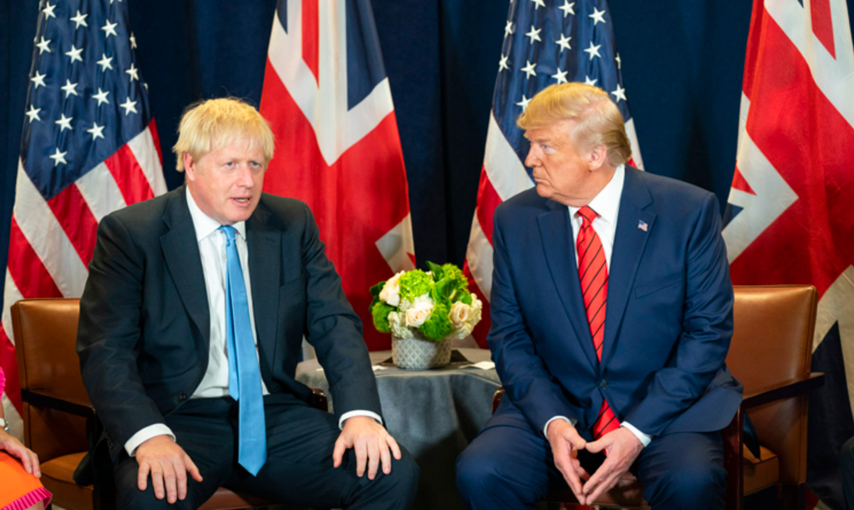
This doesn’t sit well with the ‘loveable mop-headed rogue’ image, does it? His determination to break international law with his Internal Market bill has aroused massive criticism, not only from the EU, especially Ireland, but around the world and from sitting Conservative members of parliament. The bill, which would tear up a treaty Johnson signed only ten months earlier, would destroy the Good Friday Agreement that brought peace to Northern Ireland. Former British Prime Minister John Major is among many critics of the plan. He said Britain’s signature on a treaty should be sacrosanct. “If we lose our reputation for honouring the promises we make, we will have lost something beyond price that may never be regained,” he said in a statement. Another MP described Johnson as “almost Trump without the skill”, which is a very damning statement Meanwhile, Iain Martin, writing on the Conservative website Reaction, of which he is both editor and publisher, doesn’t seem impressed by Johnson’s recent activities. “What matters is that the elders of the Tory tribe – in the parliamentary party and in the Lords – are savaging Boris for his general hopelessness, which is the first step to imagining life after Boris. His performance in front of the Commons Liaison Committee this week was atrocious, the worst kind of ‘dog ate my homework’ drivel.” Remember, the writer is a faithful Conservative who also warns that “Lord Howard, Michael Howard, is a fearsome opponent and he’s on Boris’s tail on that Internal Market Bill.”
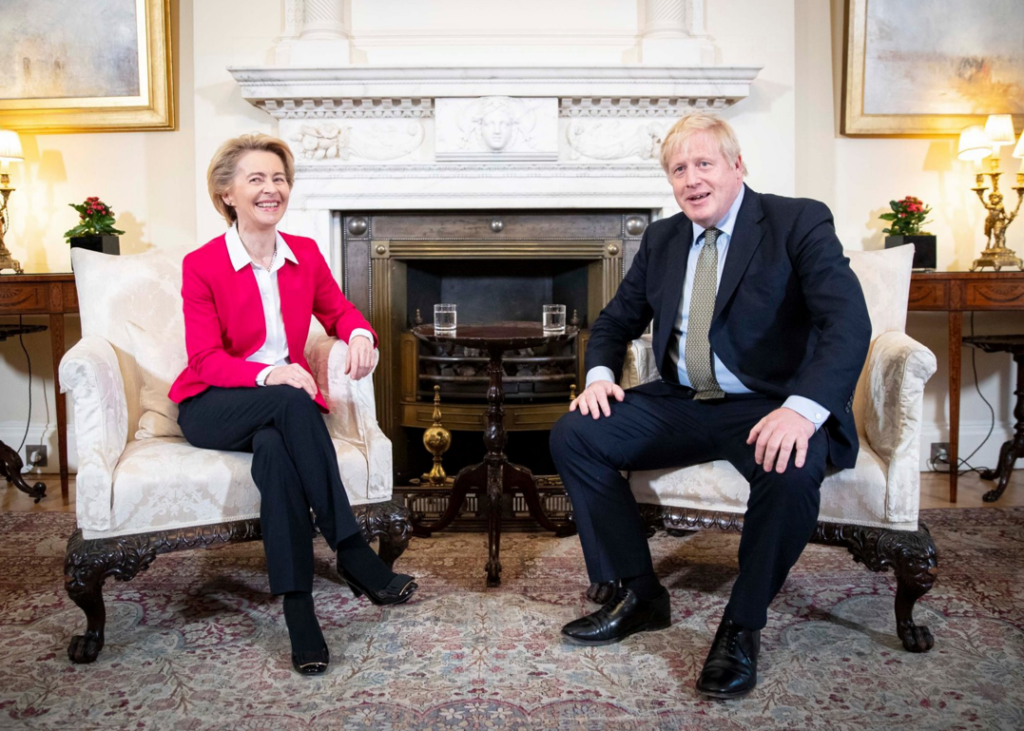
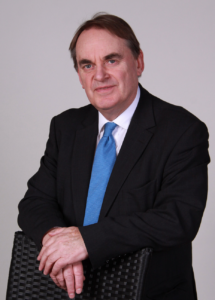
“There may well have been a decision to leave the European Union,” I was told by Lord Kirkhope, the former Conservative MEP Timothy Kirkhope, “but I think it is completely unacceptable for the government, or, indeed, any of the government’s supporters, to take that further into a nasty sort of enmity towards our European neighbours.” Enmity towards Europe is not really what Johnson feels, but it matches Cummings’ attitude and therefore it has become Johnson’s. “My view is that the way they’ve been behaving recently,” Lord Kirkhope continued, “and how it looks as if it will go in the next few months, is that not only are we going to be out of the EU institutions, but we’re going to be demonstrating quite clearly a loathing and an enmity towards our European neighbours which is not only dangerous but which doesn’t serve the interests of this country.” The Michiavellian idea that rex non potest pecare – the ruler can do no wrong – has taken a bit of a battering. Gradually – because many of the new parliamentary intake that make up Johnson’s huge majority were elected for being opposed to immigrants and, by extension, foreigners in general – the Conservative back bench MPs are beginning to spot the flaws in Johnson’s largely artificial gloss. They may blame Cummings, at least partially, but they can only get rid of him by getting rid of Johnson. “A political leader must keep looking over his shoulder all the time to see if the boys are still there,” advised Bernard Baruch, the US financier and presidential advisor in the New York Times in 1965. “If they aren’t still there, he’s no longer a political leader.”

